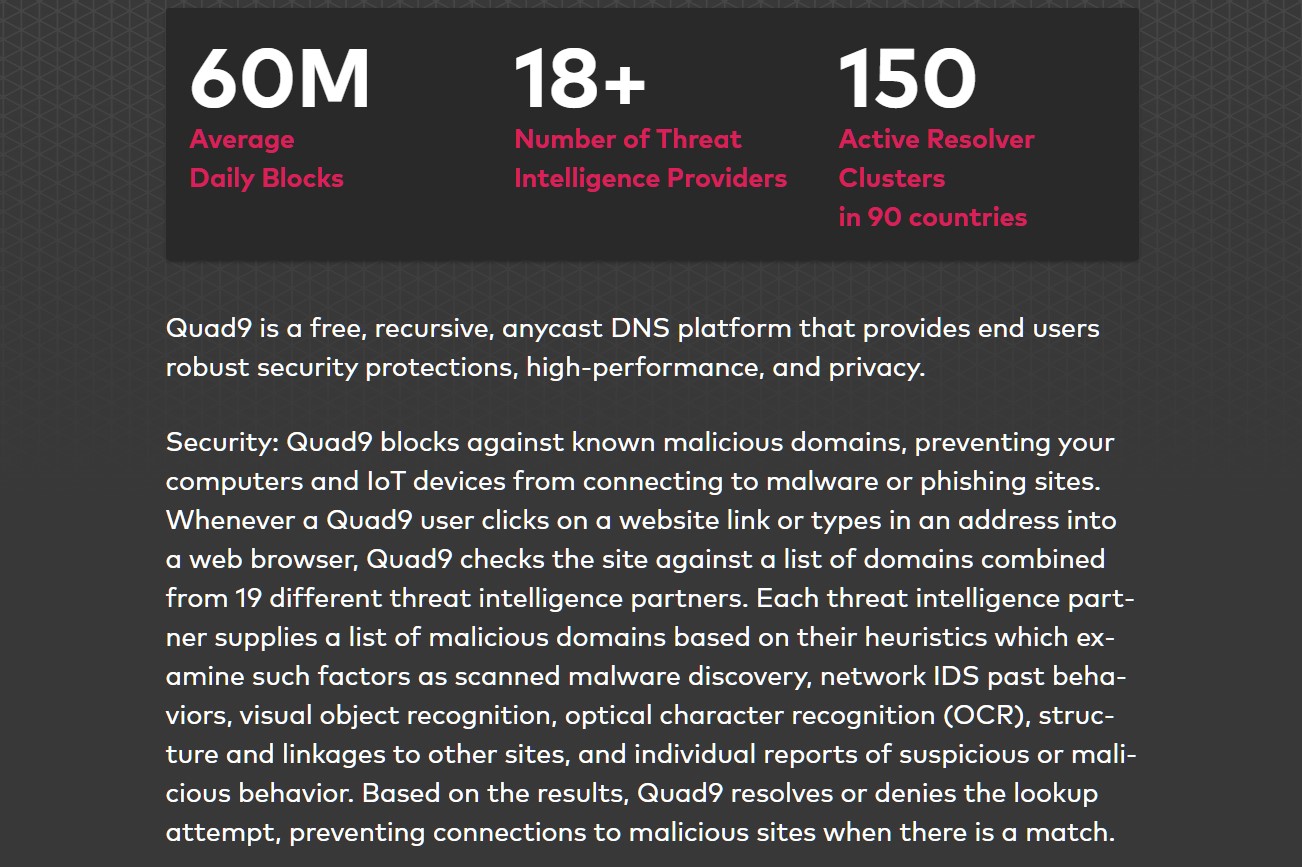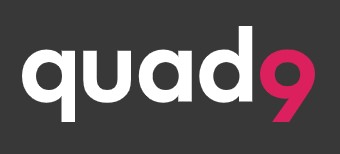[Most Recent Entries] [Calendar View]
Monday, June 21st, 2021
| Time | Event |
| 8:11a | Sony Wins Pirate Site Blocking Order Against DNS-Resolver Quad9 (Updated)
A few months ago a voluntary agreement was announced with the country’s largest ISPs, which agreed to block pirate sites after a verification process. This is a major win for rightsholders, but one that can be easily defeated. The Internet providers use relatively simple DNS blockades which can be circumvented by switching to third-party DNS resolvers such as Google, Cloudflare or Quad9, which are all free to use. However, that loophole may not last forever. Last week Sony Music obtained an injunction at the District Court of Hamburg which requires the Swiss DNS-resolver Quad9 to block access to a site that’s frequently used to host pirated music. While the site remains unnamed, the consequences could be far-reaching. The Hamburg court found that the DNS service is not eligible for the liability protections that other third-party intermediaries such as ISPs and domain registrars typically enjoy. And if Quad9 fails to comply with the injunction, it will have to pay a fine of 250,000 euros per ‘infringing’ DNS query plus potentially two years in prison. One of the arguments that Sony brought up in court was that Quad9 already blocks various problematic sites voluntarily. In fact, the DNS-resolver promotes threat blocking as a feature. “Quad9 blocks against known malicious domains, preventing your computers and IoT devices from connecting to malware or phishing sites,” the company’s website reads.  Bill Woodcock, chairman of the Quad9 foundation, doesn’t believe that the company’s malware and phishing filters, which help to protect users, are on par with blocking a pirate site. He informed the German news site Heise that Quad9 will appeal to the injunction. Speaking with TorrentFreak, Quad9’s General Manager, John Todd, says that the company is still reviewing the order, which it received last Friday. The non-profit foundation doesn’t believe its resources should be used to benefit for-profit companies such as Sony. “Our donors support us to protect the public from cyber-threats, not to further enrich Sony,” Todd informs us. One of Quad9’s missions is to protect the public from malware and phishing threats. In the past, copyright holders have repeatedly warned that pirate sites are malware threats. However, Quad9 relies on qualified experts to determine what threats to block, not on copyright holders that clearly have other interests as well. “Quad9 derives its threat intelligence from qualified experts on malware and phishing, not from the claims of parties without relevant expertise. We would be unable to maintain our 98% success rate in blocking cyber-threats if we accepted input based on self-interested claims, rather than on forensics and expert analysis,” Todd notes. The injunction is also criticized by Thomas Rickert, a lawyer at the German internet association ‘eco’. “I cannot imagine a provider who is further removed from responsibility for any illegal domains than a public resolver operator,” he told Heise. This is not the first blocking order against a third-party online intermediary in Germany. Last year, Universal Music obtained a similar injunction against Cloudflare. That order wasn’t for Cloudflare’s DNS-resolver, but for the CDN service. The Cloudflare injunction is also different because it applied to the pirate music site DDL-Music, which was a Cloudflare customer. DDL-Music could also be the target in the recent injunction, but Quad9 said that this isn’t the case. However, there’s another, perhaps more likely candidate. As highlighted earlier, if this injunction stands it will be a powerful tool to complement the voluntary ISP blockades. At the moment that blocklist only includes three sites. Of those three, canna.to is the only one that offers access to pirated music, so that would be our bet. Quad9 didn’t confirm or deny that canna.to is the target of the injunction but the foundation plans to release more information in the near future. — Update: The article was updated to add a response from John Todd, Quad9’s General Manager. We also removed a sentence and added some extra information. From: TF, for the latest news on copyright battles, piracy and more. |
| 4:17p | EU Court: Copyright Trolls Can Target BitTorrent Pirates Provided Claims Aren’t ‘Abusive’
The company acts as a middle-man between rightsholders and legal action against alleged pirates from whom it demands cash settlements to make supposed lawsuits disappear. Mircom and controversy are rarely far apart. In 2019 the High Court in the UK threw out its efforts to obtain the identities of Virgin Media customers and in Denmark it was accused of filing cases it had no right to file. Demands For Subscriber Data in Denmark Face OppositionIn 2019, Mircom demanded that Telenet, the largest provider of cable broadband in Belgium, should hand over the personal details of subscribers behind thousands of IP addresses alleged to have downloaded pornographic movies using BitTorrent. Telenet, supported by fellow ISPs Proximus and Scarlet Belgium, fought back at the Antwerp Business Court (Ondernemingsrechtbank Antwerpen) in an effort to protect their customers. As part of that process, the local court referred several questions to the EU Court of Justice (CJEU) for clarification. The first question centered on the nature of BitTorrent and sought to establish whether downloading and uploading fragments of a copyrighted work (which in their own right are unusable) amounts to a ‘communication to the public’ under the Copyright Directive. The second sought clarification as to whether a contractual holder of a copyright (licensee) that does not exploit those rights (other than via demands for settlements in legal action) has the same rights as a regular rightsholder. Ruling By The EU Court of JusticeOn whether uploading fragments of a copyrighted work constitutes an infringement, the CJEU clarifies that even though the pieces are individually unusable, users effectively give their consent to sharing those pieces after being “duly informed” of their characteristics. “By downloading the pieces of a file, that user simultaneously makes them available for uploading by other users. In that regard, the Court finds that the user must not in fact download a minimum threshold of pieces and that any act by which he or she gives access to protected works in full knowledge of the consequences of his or her conduct may constitute an act of making available,” its decision reads. On the second matter, which concerns an entity like Mircom that doesn’t exploit its rights other than to claim damages from alleged infringers, the Court found that there is no fundamental barrier to that under EU law, provided certain conditions are met. Specifically, the copyright trolls’ claims must not be considered “abusive” but the thresholds for that must be determined on a local level by member states’ courts, something that could lead to a difference of opinions within the bloc. However, the CJEU does offer an example that sits at the heart of many copyright troll campaigns – the lack of lawsuits to demonstrate that copyright trolls will sue if compensation isn’t paid. “The Court states that any finding of such an abuse is a matter for the referring court, which could, for example, ascertain, for that purpose, whether legal proceedings have actually been brought in the event of an amicable settlement being refused,” the Court notes. “As regards, in particular, a request for information, such as that made by Mircom, the Court finds that it cannot be regarded as inadmissible on the ground that it is made during a pre-litigation stage. However, that request must be rejected if it is unjustified or disproportionate, which is for the referring court to determine. By that interpretation, the Court seeks to ensure a high level of protection of intellectual property in the internal market.” IP Address Collection and ProcessingThe IP addresses in Mircom’s possession were recorded on its behalf by the FileWatchBT software operated by Germany-based Media Protector GmbH. Telenet raised questions over the lawfulness of the manner in which the IP addresses were collected but the Court found no fundamental issues. Referencing the Copyright Directive, the CJEU found that nothing within precludes, in principle, the “systematic recording, by the holder of intellectual property rights as well as by a third party on his or her behalf, of IP addresses of users of peer-to-peer networks whose internet connections have allegedly been used in infringing activities.” The Court further identifies no barriers to the communication of the names and postal addresses of those users to a rightsholder or third party to enable a claim for damages in a civil court. However, any initiatives and requests must be “justified, proportionate and not abusive” and have their basis in national legislative measures. Again, that will be something for local courts to determine. The decision by the CJEU broadly follows the recommendations by Advocate General Szpunar published last year. The CJEU’s summary and full ruling can be found here and here From: TF, for the latest news on copyright battles, piracy and more. |
| << Previous Day |
2021/06/21 [Calendar] |
Next Day >> |
 Copyright holders have made serious work of website blocking in Germany.
Copyright holders have made serious work of website blocking in Germany. 